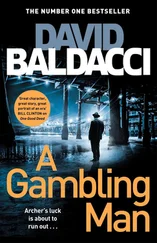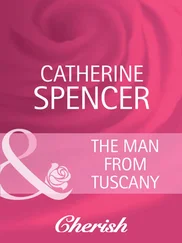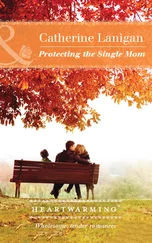He was holding her tightly to him. They fell backwards on to the bed and he rolled her to and fro, and they laughed together; then, his mouth covering hers, he kissed her long and hard.
When finally he pulled her upright the ribbon had fallen from her hair and it was loose about her shoulders and he took a handful of the black silkiness and rubbed it up and down his cheek.
‘You’re pleased?’
‘Oh! Charlotte, what more can you give me?’
‘One every year until I grow fat. I’d love to grow fat.’
‘I don’t want you fat, I want you just as you are.’ And in this moment he was speaking the truth. He now took her face between his hands and watched her thin nostrils quiver. Her eyes were soft and full of love for him, and he said, ‘You’re the finest woman I’ve ever known, and ever will know.’
And she said, ‘I love you.’
He could not say, ‘And me you,’ but he took her in his arms and held her tightly.
PART FOUR
The Resurrection
The foreign-looking young woman handed her ticket to the ticket collector, stared at him for a moment, then passed through the barrier. She was the last of a dozen people to leave the platform and his look followed her. She was a foreigner. He could tell by her dress; she had strange-looking clogs on her feet and a black cloak hung from her shoulders right down to the top of them. She had a contraption on her head that was part hat, part shawl, with a fringe, and strings from it, like pieces of frayed twine, were knotted under her chin. Another odd thing about her was, although her skin was brown her hair was white and frizzy, like that of an old Negro’s, yet her face was that of a young woman. She reminded him of a man that used to live near him who had white hair and pink eyes. They said he was an albino. He had been an oddity.
When the young woman reached the main thoroughfare she seemed slightly bemused; the traffic was so thick, and the Saturday evening crowd were pushing and shoving. She stepped into the gutter and the mud went over the top of her clogs. She stared at one face after another as if she had never been in a crowd before, as if she had never seen people before.
She walked on like someone in a daze. She skirted the stalls in the market place and when she heard a boat horn hooting she stopped and looked down the narrow lane that led to the ferry, then she went on again.
She was half-way down the bank that dropped steeply to the river when again she stopped. And now she put her hand inside her cloak and pressed it against her ribs. Then she turned her head upwards and gazed into the fading light.
Two men paused in their walking and looked at her, and she brought her head down and stared back at them. And when they looked at each other in a questioning way she ran swiftly down the bank away from them, her clogs clip-clopping against the cobbles.
On the river-front now, she hurried in a purposeful way along it until she came to where had stood the square of waste land, and here she looked about her in some perplexity, for the ground was now railed in, its railings joining those which surrounded the boatyard. Her steps slowed as she approached the alleyway; the light was almost gone, and when she went to open the gate and found it locked, she rattled it, then knocked on it, waited a moment, and, now almost in a frenzy, took her fist and banged on it.
When there was still no reply she looked up and down the alleyway before hurrying towards the far end where it terminated at the river wall; and now she did what she had done a number of times before when Jimmy had bolted the gate from the inside, she gripped the last post of the fence where it hung out over the river and swung herself round it, and so entered the boatyard.
Now she stood perfectly still looking up towards the house. There was a light in the window of the long room. Again she put her hand inside her cloak and placed it over her ribs, then slowly she went towards the steps and mounted them. She didn’t open the door but knocked on it.
She heard the footsteps coming across the wooden floor towards it, but it didn’t open. A voice said, ‘Who’s there?’
She waited a second before answering, ‘Open the door, Jimmy.’
There was complete silence all about her now, no movement from inside the room. She said again, ‘Open the door, Jimmy, please. Please open the door.’
Again there was no answer. She heard the steps moving away from the door. She turned her head and saw the curtains pulled to the side; she saw the outline of Jimmy’s white face pressed against the pane. She held out her hand towards it.
She didn’t hear the footsteps return to the door; nor was there any other sound, not even any movement from the river. It seemed to her that she was dead again. Her voice high now, beseeching, she called, ‘Jimmy! Jimmy, it’s me. Open the door. Please open the door.’
When at last the door opened it seemed it did so of its own accord; it swung wide and there was no one in the opening. She stepped over the threshold and looked along the room to where Jimmy was backing slowly along the side of the table towards its far end, and she stood, with her hand on the door and said, almost in a whimper, ‘Don’t be frightened, Jimmy, I’m . . . I’m not a ghost. It’s . . . it’s me, Janie. I . . . I’ve been bad. I . . . I wasn’t drowned.’ She closed the door, then leant her back against it and slowly slid down on to the floor and slumped on to her side.
Jimmy gazed at the crumpled figure but didn’t move. He had never been so terrified in all his life, he wanted to run, jump out of the window, get away from it . . . her. Yet . . . yet it was Janie’s voice, and she said she was Janie. That’s all he had to go on, for from what he could see of her, her skin was like an Arab’s and her hair was white. Janie had been bonny, and her skin was as fair as a peach and her hair brown, lovely brown.
When she moved and spoke again, he started.
‘Give me a drink, Jimmy, tea, anything.’
As if mesmerized now, he went to the hob and picked up the teapot that had been stewing there for the past hour, and with a hand that shook he filled a cup, spooned in some sugar, then slowly advanced towards her.
He watched her pulling herself to her feet, and as he stood with the cup in his hand, staring wildly at her, she passed him and went towards a chair, and after a moment she held out her hand and took the cup from him, and although the tea was scalding she gulped at it, then asked, ‘Where’s Rory?’
The gasp he gave brought her leaning towards him, and she asked softly, ‘Nothin’ . . . nothin’s happened him?’
His head moved as if in a shudder and then he spoke for the first time. ‘Where’ve you been?’ he said.
‘I . . . I was washed up there. I don’t remember anything about it but they told me . . . at least after a long time when the priest came over the hills; he could speak English. The fishing-boat, it found me off Le Palais. I was clinging to this wood and they thought I was dead. I must have been in the water for a long time swept by a current, they said, and . . . and when I came to meself I didn’t know who I was. I . . . I never knew who I was till a month ago.’
‘Just a month ago?’
‘Aye.’ She nodded slowly.
He gulped twice before he asked, ‘Well, how did you get on? Who did you think you were?’
‘Nobody; I just couldn’t remember anything except vaguely. I seemed to remember holding a child. I told the priest that, and when he came next, he only came twice a year, he said he had inquired along the coast and he’d heard of nobody who had lost a wife and child. There had been great storms that year and lots of boats had been sunk. He told me to be patient an’ me memory’d come back and I’d know who I was. It . . . it was Henri who brought it back.’
Читать дальше
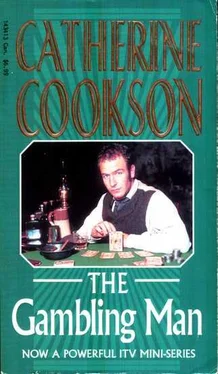
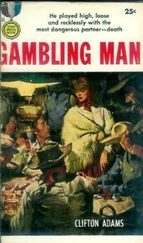
![Дэвид Балдаччи - A Gambling Man [calibre]](/books/384314/devid-baldachchi-a-gambling-man-calibre-thumb.webp)
